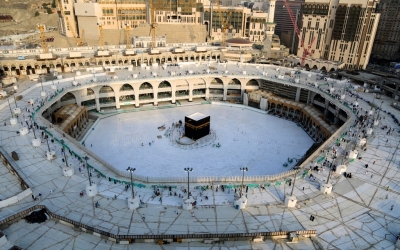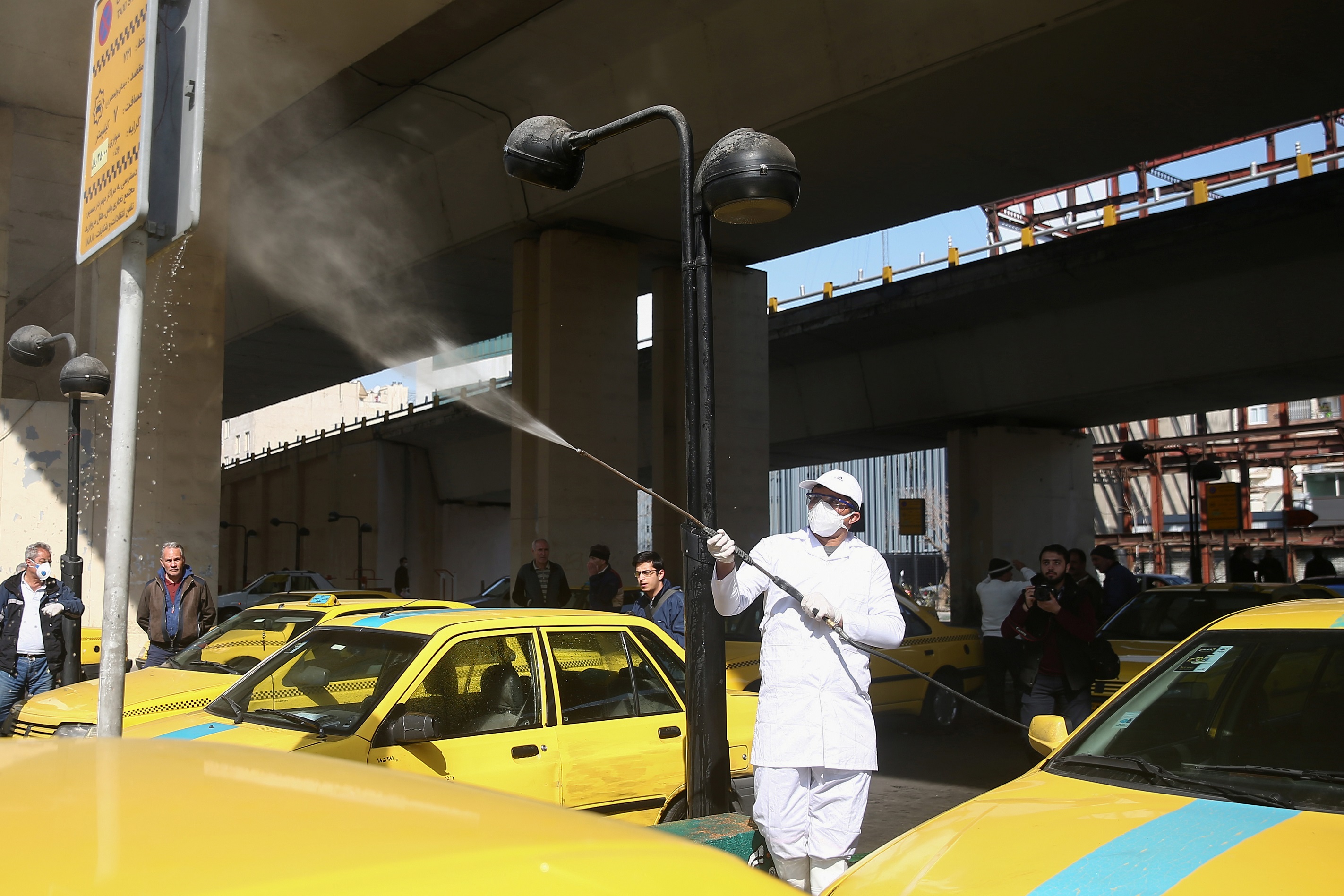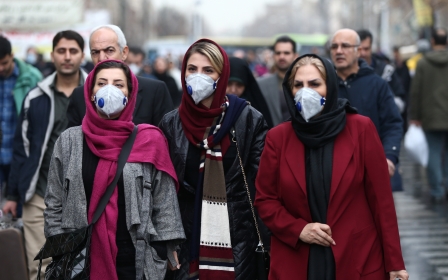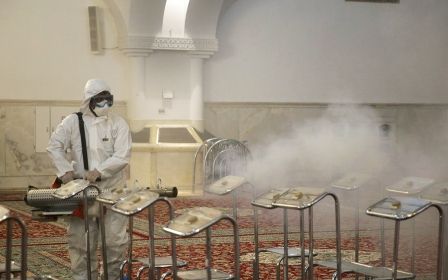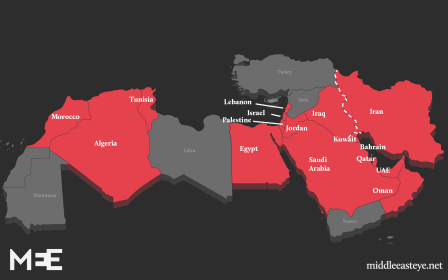Coronavirus: Iran death toll surpasses 120 as former senior diplomat dies from illness
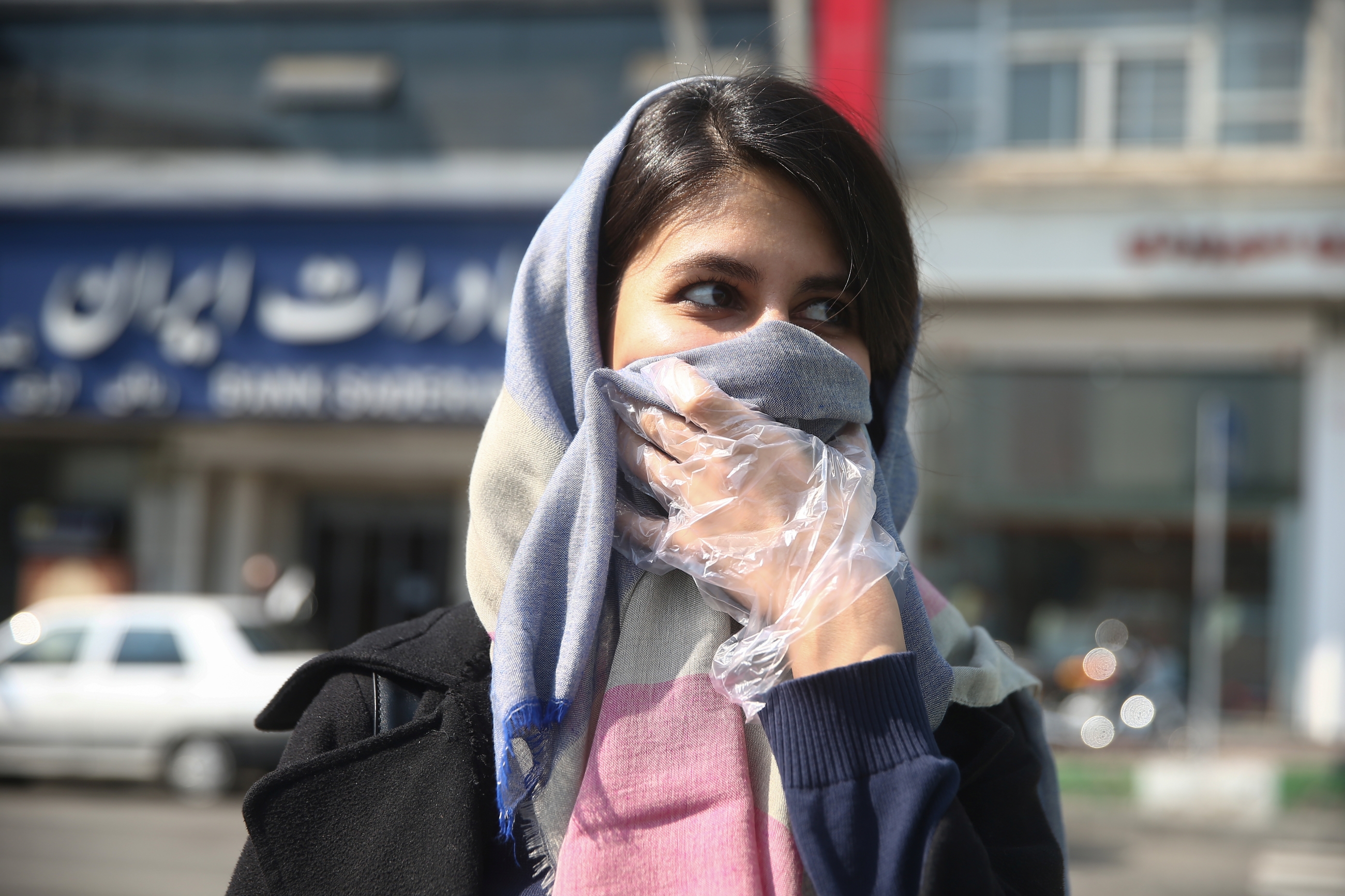
Iran's death toll for the new coronavirus surpassed 120 people on Friday, as state news outlets reported the death of a former senior diplomat who suffered from the illness.
Hossein Sheikholeslam, who took part in the 1979 US embassy hostage crisis, had died of the coronavirus, according to the official IRNA news agency.
New MEE newsletter: Jerusalem Dispatch
Sign up to get the latest insights and analysis on Israel-Palestine, alongside Turkey Unpacked and other MEE newsletters
News of his death came before Iran's health ministry on Friday confirmed that at least 124 people had died of COVID-19, while more than 1,000 people had been diagnosed of the virus overnight - bringing the total number of infections in Iran to 4,747.
The numbers presented a sharp climb from just a day ago when on Thursday the official number of diagnosed cases stood at 3,513, and the death toll at 107.
Earlier this week, Iranian President Hassan Rouhani said that the coronavirus had affected "most" of Iran's provinces.
Iran has become the epicentre of the disease in the Middle East, with the country having the highest number of fatalities outside of China, where the virus originated. Several cases in the region have also come from individuals who had visited Iran in the last month.
The number of people infected by the virus globally surpassed 100,000 on Friday, according to a Reuters tally based on statements from health ministries and government officials.
Regional rival Saudi Arabia on Friday called on its citizens to declare if it had visited Iran in the last two weeks as part of measures to contain the coronavirus, the kingdom's civil aviation authority said.
"If you were in Iran in the past 14 days, take the initiative and declare it; protect your health and the health of your family," said the Saudi civil aviation authority tweet.
Members of Saudi Arabia's Shia minority tend to keep their visits to rival Iran secret.
Iran's schools and universities closed for a month
Iran on Thursday said it would close all schools and universities for one month to prevent further spread of the disease.
Iranian Health Minister Saeed Naamaki said this measure was part of a national plan to combat coronavirus.
Families would be contacted by telephone to help identify possible cases, and health teams would disinfect public spaces, Namaki said, listing the provinces of Qom, Gilan and Isfahan as the locations where the plan would begin.
On Sunday, Namaki said that 300,000 teams, including members of the Basij militia, would be sent out to perform door-to-door coronavirus screening. The plan sparked criticism from Iranians online about the possibility of the teams spreading, rather than stopping, infections.
But the plan announced on Thursday did not mention door-to-door screening.
"Our method is not going into homes," Namaki said on state TV. "We can use digital communications and ultimately the telephone. So we don't see a reason to go to the doors of peoples' homes."
The telecommunications ministry was working on an app to enable people to register cases of suspected infections, he said.
Iran has reported a higher deaths-to-infections ratio when compared to other countries, sparking fears that the number of people infected may be higher than current figures show.
The Iranian healthcare sector was already drastically weakened by US sanctions before the virus' outbreak, and the government has been left scrambling to respond to the fast pace of infections.
Several MPs and top officials have been infected by the virus, with a senior adviser to Supreme Leader Ayatollah Ali Khamenei dying from the illness.
Last month, Namaki said the virus had come from China to the holy city of Qom in central Iran. He said the first diagnosed patient was a merchant who often travelled between China and Qom.
Middle East Eye delivers independent and unrivalled coverage and analysis of the Middle East, North Africa and beyond. To learn more about republishing this content and the associated fees, please fill out this form. More about MEE can be found here.


